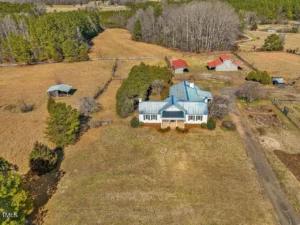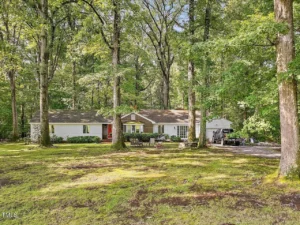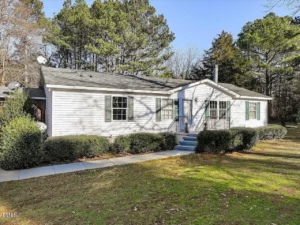Pittsboro Real Estate Agent Eric Andrews explains that in North Carolina, sellers and real estate agents do not have to tell you if there was a suicide or murder in a home for sale. However, if you ask, they should indeed tell you. Events like suicides do not always impact a home’s price. Of course, a violent crime can hurt the price and, in some cases, increase the property value.
Speaker 1: Are murders and suicides real estate disclosures?
Speaker 2: Well, yes and no. So in North Carolina, we have, what’s known as a residential property disclosure statement. It’s not on that statement, whether or not someone was murdered or committed suicide on a particular property. If someone asks us, we have to tell the truth if we know about it, but it’s not something that we have to go up and tell somebody.
Speaker 1: The buyer’s agent wouldn’t know it’d be…
Speaker 2: Right. The buyer’s agent wouldn’t know.
Speaker 1: Seller’s agent might not know either.
Speaker 2: The seller’s agent might not know either. It’s not mandatory that the seller tell us. The second house I ever sold was a house that someone committed suicide in, it was a horrible divorce situation. It was a little brick ranch with a pull down attic. The husband, his wife, and kids left him, and went back to West Virginia. He was still here in [inaudible]. He in the middle of the summer, pulled down the attic, set up the Christmas tree with all the kids’ ornaments on it, in the attic, and hung himself in the attic.I had just started in real estate and several other realtors refused the listing and everything, I was like, well, I certainly wanted to help out the family in West Virginia. They needed to get out of the mortgage and they had some, equity in the property, the first lady I showed it to, she was looking for her daughter.
And she’s like, “Isn’t this the house, the guy committed suicide in?”, I said, yes, ma’am. It was. And she’s like, “okay.” It wasn’t an issue. It wasn’t an issue to her at all. But, I was required by North Carolina to answer. I didn’t have to upfront disclose it, but I did have to answer it honestly, when asked. Unfortunately, I had another property with a gruesome murder, and it was a husband that killed his wife and shot his daughter in the face, and she actually survived. The sale was necessary to help her out, to pay for her medical bills. That was a house that we actually, we had to clean before we could even sell it.But there was still no money in the estate to do everything.
So there’s still bullet holes in the walls and everything. That was very notorious. Everybody, everybody knew about it. That was such common knowledge that it wasn’t really anything to disclose because everybody knew, but it’s not. So it can get to the point where there’s a house that is so notorious, because of a murder, that there could be some kind of diminution of value. There are other houses that are worth more because there was some kind famous murder at the property.Tragic when there’s a suicide or a murder in a property. It is not an upfront disclosure, but we have to answer honestly, when people want to know.





